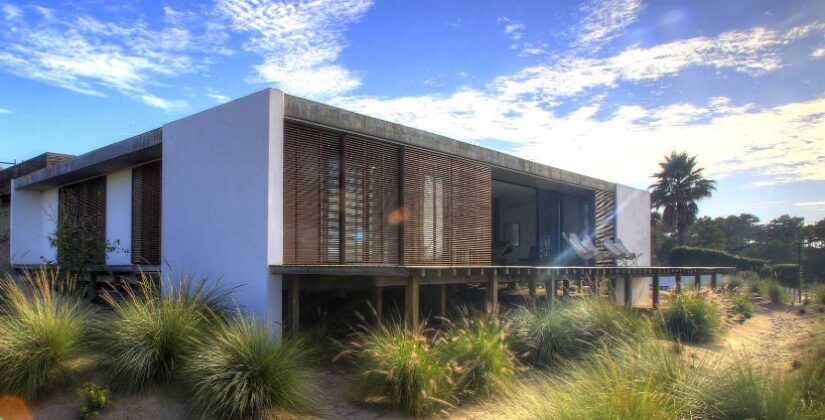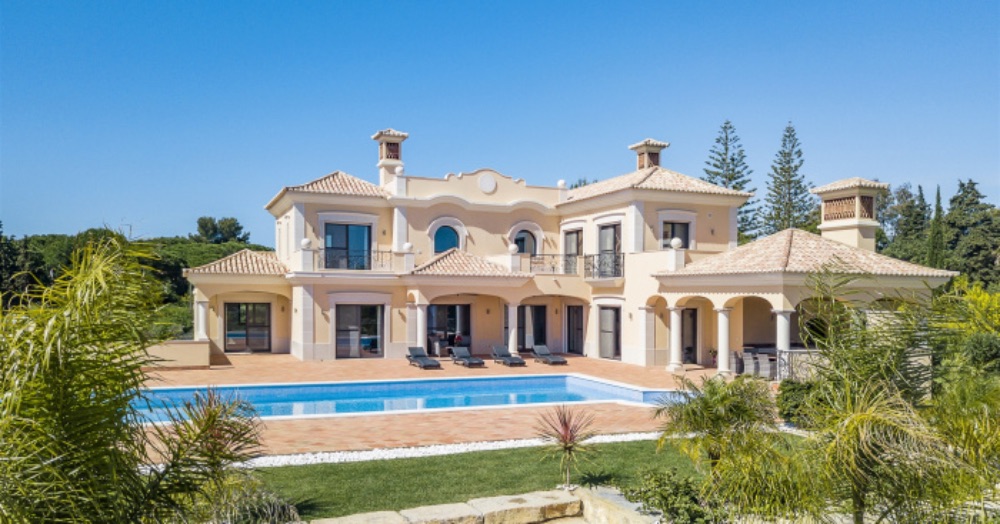
Real Estate Financing Portugal | Which solutions | Which steps to take?
You have decided to invest in real estate in Portugal. Or you want to buy a villa or a flat. To make your project a reality, you need a financing loan. And you are not yet resident in the country.
This article explains all the steps you need to take to obtain the best loan to finance your future property investment.
PORTUGAL IS ATTRACTING MORE AND MORE INVESTORS
Since 2015, Portugal has become an extremely dynamic market, highly valued by investors. There are several reasons for this unique interest in Europe.
First of all, the number of tourists has more than doubled in less than 10 years. There is a shortage of seasonal accommodation. Many investors have anticipated this situation and have invested in this highly profitable market.
Multinationals have also been attracted. Large international groups have decided to set up their European headquarters or to build their production plants there.
The Portuguese government has introduced a series of tax advantages. Notably in real estate, to attract foreign capital. The aim being to give a new economic dynamic to the country. And it has done so successfully. Today, the 2 main cities, Lisbon and Porto, have seen their centres totally renovated in the architectural and cultural spirit of the country. The real estate market is experiencing unprecedented growth.
If you would like to find out more about the tax advantages introduced by the Portuguese government, read our article : Portugal Taxes | The 12 main taxes | How to calculate them | How to limit your tax charge?
Many people have recently discovered Portugal. It is a warm and welcoming country that offers an incomparable quality of life. Many Europeans, mainly French, British, Belgians and Swiss, have chosen to settle here to enjoy the local Dolce Vita. They are both active and retired people who spend a peaceful life here.
REAL ESTATE FINANCING PORTUGAL : IS IT ALSO POSSIBLE FOR ME?
In recent years, and especially since the country’s spectacular economic recovery, banks have considerably eased the conditions of access to financial credit.
With the property market becoming one of the most important in the country, banks have naturally broadened their financing offers to attract a maximum number of investors.
Today, access to home loans is as natural as in other European nations, even for foreign individuals or companies
WHY SHOULD I CHOOSE A PROPERTY LOAN FOR MY INVESTMENT IN PORTUGAL?
The period that we have been experiencing for the last 5 years has never been so favourable to proceed to a financial credit.
Mortgage rates charged are historically low. The charge for the payment of interest to the bank is very low. This is why the investor prefers to devote his own funds to the acquisition of a larger real estate portfolio. Instead of financing a property entirely with his capital, he will be able to acquire several assets with the help of a real estate loan. In this way, he will pay less interest to the bank compared to the return on his real estate investment.
There are also many advantages to using a Portuguese banking institution. In particular, it avoids unnecessary costs if you go through an intermediary (which could be your usual banker). You may also have to pay exchange rate charges if you use a bank whose transaction currency is not the euro (as in Switzerland, for example).
But the main advantage is as follows. If your mortgage loan comes from a Portuguese bank, the bank will have legal checks carried out on the property you are considering buying. It will also carry out an assessment of the market price. This will ensure you pay the right price.
One last piece of advice: apply for a financial credit as soon as possible. The bank will first ask you for the necessary documents to assess your financial situation. This will enable you to find out your real financing potential for your future acquisition.
If you would like to find out your investment potential, consult our file “Estimation Budget Immobilier_Les 6 Étapes pour définir votre potentiel d’investissement” by clicking on the button below.
If you would like to know how much you will be able to devote to the purchase of your property, simply consult our article : Real Estate Budget estimate | The 6 Steps to define your investment potential
WHICH BANKS IN PORTUGAL CAN I CONTACT?
In Portugal you will find several banking institutions. We recommend those that have a network of branches at national level and are experienced in the real estate market.
Here is a list of the main ones:
1. Caixa Geral dos Depósitos
https://www.cgd.pt/Particulares/Pages/Particulares_v2.aspx
2. BPI
https://www.bancobpi.pt/particulares
3. Millenium BCP
https://ind.millenniumbcp.pt/pt/particulares/Pages/Welcome.aspx
4. Banco Montepio
https://www.bancomontepio.pt/particulares
5. Banco CTT
One more piece of advice
If you live abroad, try to contact one of the banks that has a branch in your country of residence. This will avoid any risk of misunderstanding if you do not speak Portuguese. In addition, your adviser will be able to guide you even better, as he or she knows all the tips for obtaining your loan as a non-Portuguese resident.
REAL ESTATE FINANCING PORTUGAL | COMPARE OFFERS
First of all, you need to contact 2, ideally 3 banks in order to compare services.
Not all banks operate in the same way and it is important to understand which one will be able to provide you with the right solutions for your investment project.
There are 2 main types of loan: fixed rate and variable rate mortgages.
Fixed rate mortgage
This product has the advantage of avoiding financial market fluctuations by paying a fixed interest rate to the bank during the contract period.
This solution offers security when drawing up your property budget. Indeed, you won’t be surprised to see the interest rate increase. But you won’t be able to benefit from a possible decrease either.
The fixed-rate mortgage formula is particularly appropriate if you opt for a medium/long-term contract, between 5 and 10 years or more. Be careful, however, to allow yourself the latitude to repay all or part of your mortgage at times scheduled in the contract. If you wish to repay your loan in full during the term of the contract, you may well have to pay a penalty for early termination of the contract.
Variable rate mortgage
This variant presents more risk. However, it generally grants better interest rates. It all depends on the level of risk you wish to take.
The interest payment fluctuates according to the Euribor index. It is generally revised every 6 months. The financial market will therefore dictate the evolution of the interest rate you will have to pay to the bank during the period of your mortgage loan contract.
REAL ESTATE FINANCING PORTUGAL : WHAT ARE THE CONDITIONS TO BE MET TO BENEFIT FROM IT?
Portuguese banks have defined standards for the granting of property financing. They differ whether you are an individual or a company.
The requirements for a private individual :
There are 2 essential conditions to be met for the bank to validate your mortgage credit:
Condition n°1
The personal contribution of funds must be between 10% and 30%. This will depend on your general financial situation. The bank will take into account your assets, your sources of income, their sustainability and the amount you receive monthly.
Example
If your personal contribution is EUR 80,000, the maximum purchase amount of your property will be EUR 400,000: (CHF 80,000/20)*100) if the bank accepts a maximum financing of 80%.
Condition n°2
Your mortgage charges (interest + amortization + condominium fees) must not exceed 33% of your gross annual income.
Example (using the example above)
Purchase price of the property: CHF 400.000
Personal contribution of funds. : CHF 80.000
Amount of mortgage loan: CHF 320,000
Interest rate: 1.5% on CHF 320,000, i.e. CHF 4,800 per year
Amortisation: 1% of the borrowed amount, i.e. CHF 3,200 per year
PPE expenses 1% of the value of the property, i.e. CHF 4,000 per year
Total expenses: CHF 12,000 (CHF 4,800 + CHF 3,200 + CHF 4,000)
Minimum gross annual income must be CHF 36,000: (CHF 12,000/33)*100
Condition no. 3
The length of the contract will depend on several factors such as the amount of the mortgage, your financial situation and your age. Note that you will not be able to take out a contract that, when it expires, goes beyond your 80th birthday.
Requirements for a company:
The basis for reflection is the same in relation to the approach for an individual.
The major difference lies in the fact that the bank will rarely agree to finance your property (especially commercial premises) for more than 50% of its value.
You will also need to provide accounting documents (business operating account or business plan for setting up a new company) so that the bank can assess the financial health of the business or its potential for success.
REAL ESTATE FINANCING PORTUGAL : WHAT ARE THE COSTS RELATED TO THE MORTGAGE LOAN?
Take care to clarify all the costs involved in your financial credit with your bank. This will avoid any unpleasant surprises.
Here are the main costs linked to real estate financing in Portugal :
1. Mortgage interest
They are calculated according to the fixed or variable interest rate determined with the bank. Payment is generally made every 6 months.
2. Amortization of the mortgage loan
This is the repayment amount to be paid on a regular basis. This amount can either be included in the mortgage interest payment or be paid separately at periods agreed in the contract with the bank.
3. Stamp duty (IS: Imposto de Selo)
Stamp duty is payable on the purchase of a property in Portugal.
If a property loan is granted for the purchase of the property, the buyer must also pay stamp duty on the amount financed. This tax must be paid at the time the financing amount is transferred to the bank account of the client who will purchase a property in Portugal.
There are two scenarios for the payment of stamp duty on a property loan:
a) For mortgages with a repayment period of more than five years, the stamp duty tax is 0.60%;
b) If the repayment period is less than five years, the rate is 0.50%.
4. Notary fees
Count between EUR 1,000 and EUR 1,500 for notary, registry and tax costs for mortgage deeds.
5. Bank charges
Count between EUR 500 and EUR 700 for registration fees and bank assessment fees.
As already mentioned, pay attention to the costs that may also be charged to you in the event of early termination of your mortgage contract (if you sell your property without taking over the mortgage loan) or if you wish to repay your loan in full before the end of the contract. These are amounts that can be significant.
REAL ESTATE FINANCING PORTUGAL | THE STEPS TO FOLLOW
Applying for real estate financing in Portugal is not complicated. It simply requires you to follow the steps one by one to obtain your mortgage loan as quickly as possible.
Step 1: Choosing the banking institutions you will consult
Try to select 3 of them to be able to make a good comparison. Favour those who have a subsidiary in your country.
Step 2: Get an estimate of your potential access to home loans
During an initial interview and on the basis of the information you have provided to the bank, you will be given advance notice of your potential to obtain a mortgage and a range of possible credit amounts.
Step 3: Receipt of the mortgage offer
If you wish to obtain an initial offer from the bank, you will have to fill in the appropriate form provided by the bank and send it a series of documents such as: salary or pension statement, leasing contract, savings, other current credits, etc.
Find out whether or not there are any costs involved in making the offer.
Step 4: Comparison of offers and negotiation of conditions
Once you have received several offers, it’s time to compare them. Take the time to evaluate the pros and cons of each proposal to help you make the right choice.
Don’t hesitate to negotiate certain points in the offer. This will often allow you to optimise the terms of the contract.
Step 5: Validating the offer and launching the procedure
Make your choice. As soon as the contract is signed by both parties, the bank will initiate the procedure to make the funds available to you.
This starts with the bank’s assessment of the value of the property. Then you will have to deposit the amount of your personal contribution to the purchase of the property into an account. When this is done, the bank will release the amount of the mortgage loan.
Step 6: Finalisation of the procedure and granting of the property deeds
The bank will open an account with the amount of the property transaction. In front of the notary and in the presence of your lawyer, you will be able to sign the deeds of ownership and mortgage.
Once the notary has checked that the amount available in the account is correct and that the fees and taxes related to the acquisition of the property have been paid, you become the new official owner.
Thank you for taking the time to read our article through to the end.
If you would like to receive further useful information in preparation for or when buying your property, we invite you to subscribe to our Newsletter. Every month, you will receive a complete file with a wealth of other essential advice to consider before you buy your property.
You can subscribe by clicking on the blue button below.
We look forward to having you as one of our subscribers.
See you soon
VIE D’AZUR






